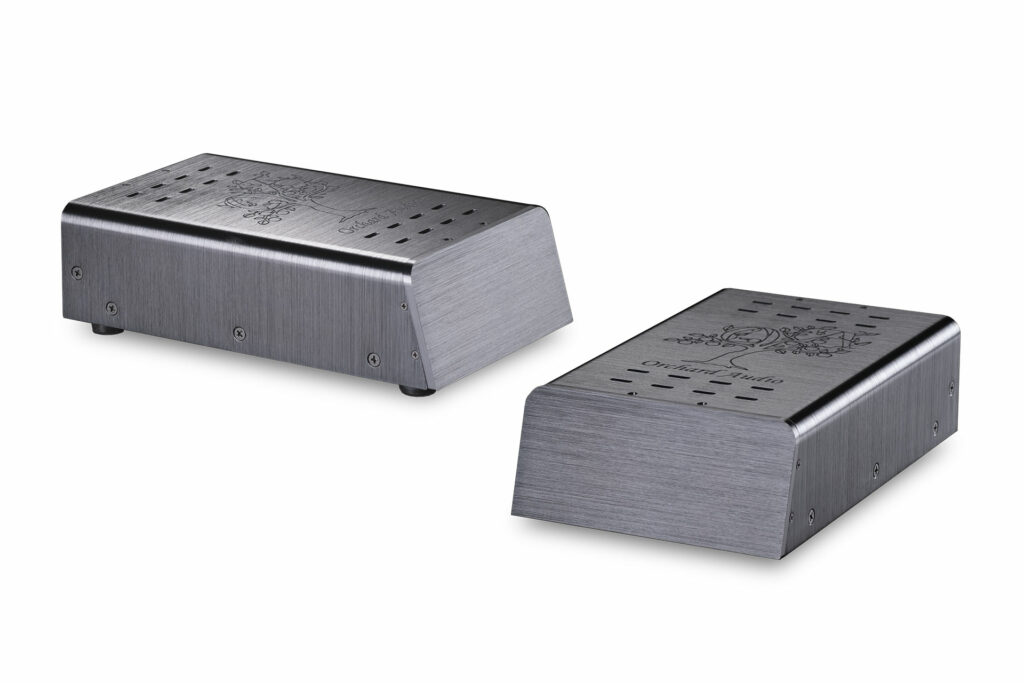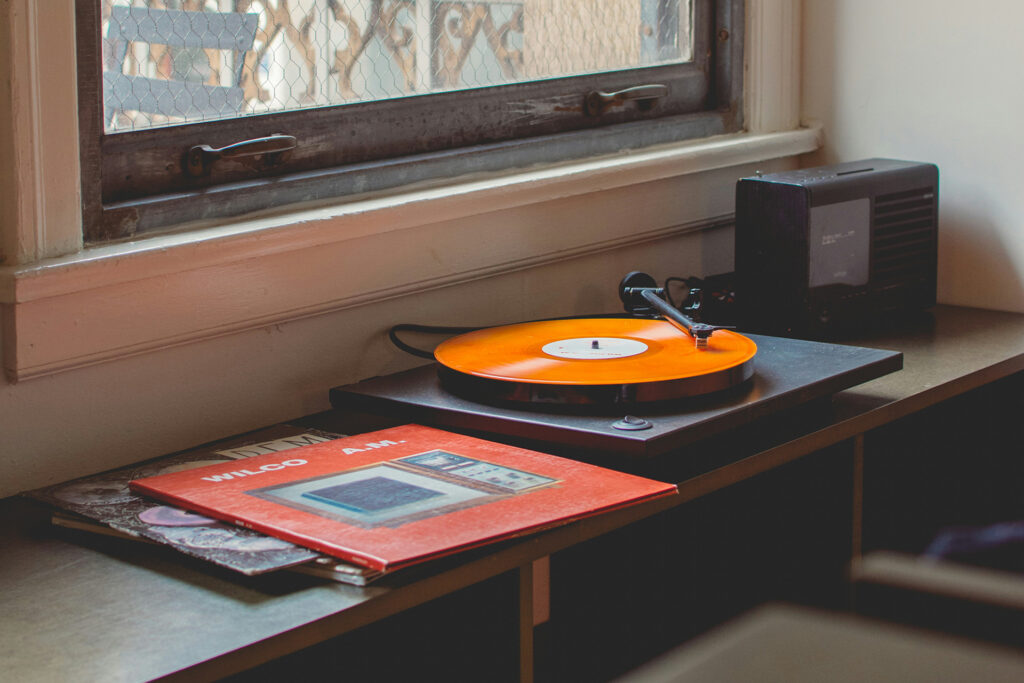Being a millennial audiophile for me means straddling two worlds – one foot in the analog past, the other in the digital present and future. We are a generation of huge contrasts, having witnessed the widespread adoption of the Internet and the advent of social media, while also being the last generation to make mix tapes and play outside until the streetlights came on every night. We witnessed 9/11 as teens and young adults, experienced the rise and fall of shopping malls and countless chain restaurants, and navigated housing market crashes, social revolutions and subsequent regressions, all while adapting to a rapidly shifting digital landscape that redefined how we work, communicate, and consume media. We entered adulthood with hopes for the stability and work/life balance of our parents, only to face economic uncertainty, skyrocketing living costs, seemingly infinite and unfettered corporate greed, and the relentless in-your-face evolution of technology that seems to isolate us as much as it connects us. With most of us in, or around, or well into our thirties and forties, it has been a hell of a run so far.
Whether you’re an elder millennial from the mid-1980s like me, or a younger one born in the 1990s, we all share one other defining experience – we came of age during a period of rapid transformation in the music industry. From cassette tapes to Compact Discs to Napster, then from iTunes to streaming, and now with the explosion of streamable and downloadable high-resolution digital audio, our formative years were shaped by the transition from physical media to an era where any song in the world is just a tap or a scroll away as a tiny fraction of what our elders once spent happily to own. Yet, despite this convenience, many of us find ourselves longing for something more – a deeper connection to our music, to our gear, to an experience that goes beyond the simple act of listening. This is why the audiophile hobby is still very much alive and well. Does it look a little different than previous generations? Absolutely. Is that a bad thing? Not necessarily. Let’s discuss.

The Audiophile Journey for Millennials …
For previous generations, the audiophile hobby often went hand in hand with adulthood, home ownership, and greater financial freedom. Vintage HiFi ads from the 1970s and 1980s showcased top-of-the-line, American-made premium gear that, adjusted for inflation, was far more accessible in many ways than even today’s more entry-level options. Dedicated listening rooms (e.g., the earliest iterations of the “man cave”) were standard, and high-end stereo setups were seen as common long-term investments, rather than bucket list luxury items.
Fast forward to today, and the financial landscape is very different. Millennials are often burdened with student loan debt, rising housing costs, and an economy that makes significant purchases a serious, sometimes years-long consideration, rather than being funded by a generous Christmas bonus (because let’s be real, those don’t exist anymore) or a tax return. For many of us, the idea of owning a five-figure dream stereo system, packed with every bell and whistle imaginable, remains just that – a distant dream.
So, what does this mean for millennial audiophiles? Just as with the many challenging events listed above, we adapt. We find ways to balance our passion for music with the realities of life as adults in the modern world. Instead of sprawling dedicated listening rooms, we are more likely to create intimate listening spaces in our cozy apartments or small starter-homes-turned-forever homes, or invest in a nice pair of headphones and maybe a solid dedicated desktop amplifier. Instead of dropping tens of thousands on reference-level audiophile equipment, we tend to seek out the best price-to-performance ratio, scouring audiophile sub-Reddits and often obscure high-end audio forums, as well as secondhand marketplaces, and waiting months, or even years, for sales and clearance pricing to make a key purchase. The journey of the millennial audiophile is marked by careful analysis and patience that previous generations may not have needed, but it does not make our passion any less valid. Value is king.

Evolving Technology & Changing Preferences in the Audiophile World
The landscape of audio gear itself has also shifted to accommodate this new breed of listener. The rise of affordable high-quality headphones, integrated streaming amplifiers and digital-to-analog converters (DACs), as well as the evolution of Class-D amplification, has democratized access to high-fidelity sound. High-quality wireless and Bluetooth headphones and streaming services offering lossless audio also cater directly to the millennial audiophile, who tends to equally value convenience, portability, versatility, and performance. Affordable Chinese-based brands, affectionately known as Chi-Fi, have also come a long way, allowing budget-conscious and/or beginner audiophiles access to relatively quality components that look and sound good, all for the cost of a month’s worth of avocado toast.
Many companies have also recognized that, while millennials at large may never be able to afford six-figure speaker setups, we still demand exceptional quality from our products, big or small. Brands like Kanto, SVS, Paradigm and many others have understood the assignment, producing a wide range of speakers that sound great, look cool, and cost around the same amount as a monthly health insurance premium. Other brands have taken note of this and produced all-in-one solutions with streaming platforms built in (like the excellent PSB Alpha iQ Bookshelf Speakers with BluOS), which eliminate the need for separate components and allow for the easy construction and integration of whole-home systems. This trend of simplifying products and services has been crucial in making high-fidelity audio more accessible, lowering the cost of entry, and broadening the appeal of the hobby. For those of us who need our gear to seamlessly integrate into our busy lives, rather than demand time and attention we simply do not have, this shift has been a welcome evolution in the world of HiFi.

Music Discovery and the Vinyl Revival from a Millennial Perspective
Another defining characteristic of millennial audiophiles is our relationship with music discovery. While previous generations may have spent hours flipping through crates at the local record store, our exploration is often algorithm-driven, guided by AI-curated playlists and social media recommendations. This isn’t necessarily a bad thing – after all, many of us, myself included, have stumbled upon incredible artists and recordings this way, which we might never have found otherwise. However, it does change the way we engage with music. The challenge is not just finding music, but finding authentic music – and creating meaningful relationships with it, ensuring that, even in an era of infinite choice, we don’t lose the joy of connecting deeply and intimately with it. Pair that with a great-sounding system, and the audiophile hobby is more alive than ever.
Millennial audiophiles also find themselves at the forefront of the vinyl revival, not out of nostalgia, but as a reaction against the ephemeral and sometimes impermanent nature of digital music. Even as someone who prefers digital music to vinyl, there is something deeply satisfying about holding a record, admiring the cover art and inserts, carefully placing the needle, and engaging in an experience that requires my full attention sans distractions. For many audiophiles, collecting vinyl isn’t about chasing that signature warm analog sound alone – it’s about reclaiming a tactile connection to music that streaming simply cannot provide. There is something special about owning a piece of music, versus simply paying for the license to stream it – and this resonates deeply with millennials, who again grew up during the transition from physical to digital, and are still mourning the loss of our beloved and ubiquitous CD storage towers that decorated the bedrooms of our childhood homes.

The Future of the Audiophile Hobby for Those Who Will Inherit It Some Day …
Despite all the changes in technology, lifestyle, and the way we consume music, the essence of being an audiophile remains unchanged. It has never been about chasing the most expensive equipment or assembling the most elaborate system; it has always been about passion. It’s about seeking out the best possible sound, the most immersive experience, and the deepest emotional connection to the music we love.
Millennial audiophiles have had to approach this hobby differently than previous generations, but our enthusiasm for music and technology should not be discounted. We may not have sprawling, dedicated listening rooms, but we maximize the spaces we do have. We may not have the disposable income to drop on insanely-priced top-of-the-line gear, but we research, we strategize, we hunt for deals, and we find ways to make high-fidelity audio work within our budgets. We appreciate both the modern and the classic, streaming music on our devices throughout the day, then find comfort in coming home to the warm, familiar sound of a record spinning on a well-loved turntable.
And in doing so, we are shaping the future of the audiophile hobby. We are proving that great sound doesn’t have to come with an outrageous price tag or an intimidating barrier to entry. We are redefining what it means to be an audiophile in an era of digital convenience and economic uncertainty, showing that passion, curiosity, and appreciation for high-quality music are what truly matter.
At its core, being an audiophile has never been about money or cultural status. It has always been about how deeply we engage with music and how much we care about the sound that emotionally moves us. And if the millennial generation has proven anything, it’s that we are resourceful, adaptable, and deeply devoted to the things that bring us joy.
So whether it’s through a pair of carefully chosen high-value bookshelf speakers, a meticulously curated vinyl collection, a pair of high-end headphones that finally went on sale, or an all-in-one streaming system that the whole family can enjoy, we are keeping the spirit of HiFi alive on our own terms, in our own way, and with just as much passion as those who came before us. The future of the audiophile hobby isn’t dying; it’s evolving. And we are the ones shaping what comes next.
Are you a Millennial or Gen Z? What is your audiophile journey like? How important is value to you? How has unlimited access to music impacted the way you listen to music and/or buy-enjoy an audiophile system? We love to hear from you and hear your thoughts. Older audiophiles, what advice would you give to young audiophiles who are coming up in the hobby? What do you wish somebody taught you when you were in your 30s? Comment away.




Let’s be real here , it is not possible for the author to achieve the contradictory aims of audiophile-quality music reproduction and the tactile, emotional satisfaction of fondling a vinyl record and the ” immersive experience” of getting that record to play on a turntable . You can buy a turntable , arm , cartridge and phono preamp for a couple of thousand dollars but it will not compare to a similarly priced DAC. I’ve had the opportunity to audition vinyl playback systems costing in the mid-six figure range , e.g. , the Winson-Beneesh set-up in Munich , and as soon as the stylus hit the groove , I knew I was listening to a record . So , derive as much emotional satisfaction from vinyl playback as humanly possible but let’s not conflate that with high quality sound reproduction . At any similar price points , digital outperforms analogue .
You are correct in absolute terms.
I am likely going to get a turntable at some point (maybe) just for the ritual. The analog nature of it. The authenticity.
I will never tell you that it is high resolution or low distortion because it is decidedly NOT no matter how many audiophile tweaks go in. The appeal is like that of a 300 SL Gullwing from 1957. Is it fast, safe or modern? Nope. Is it cool and iconic? You bet your ass it is. Would you drive it every day? Not a fucking chance but you wouldn’t mind having one in the garage for Sundays.
Thank you for your EXCELLENT COMMENTS.
As a boomer I have enjoyed your comments a lot. You are in bulls eye most of the time but I am still enjoying my glass of wine listening to vinyl.
Like wine – if you like it then it IS GOOD –
Thank you for your kind words and meaningful comments 🙂
Maybe it’s just me projecting my own desire to feel “special,” but I find it difficult to not see that the author, in his effort to differentiate from other generations attempts to establish himself and those considered to be of his generation as uniquely special, maybe more so than those from other generations–and has something to prove.
For any of us who participate in the “audiophile hobby,” my suggestion for those who have identify struggles and seek to establish that identity through the label of audiophile (or, for that matter any label) is to seek psychological counseling from a therapist skilled in the field of object relations.
I intend no judgment in my observation and accept that I may have misperceived/misunderstood the author’s words.
I think every generation faces some unique challenges. As an unashamed Gen-Xer I can identify with both Boomers and Millenials in different regards.
High end headphone rigs may be the new entry-level for the hobby but there’s still some killer traditional gear that can be had relatively cheaply. Millennials and Gen Z also have some nice, fully integrated options to get them up and running in the form of powered speakers, some of which also contain DACs, wireless connectivity and preamps.
I know I felt similar to the author as I moved out, got married and started a family. For most of us the disposable income isn’t there for a while but you can get more bang for your buck buying used until life starts to settle down, you advance in your career and eventually reach that comfort zone where things that you once considered out of reach are now attainable.
One of the biggest drawbacks for newcomers, even my generation, is the year-over-year decline in local dealers that carry the entry-to-mid-level gear that you can build a relationship with and be able to demo products in person.